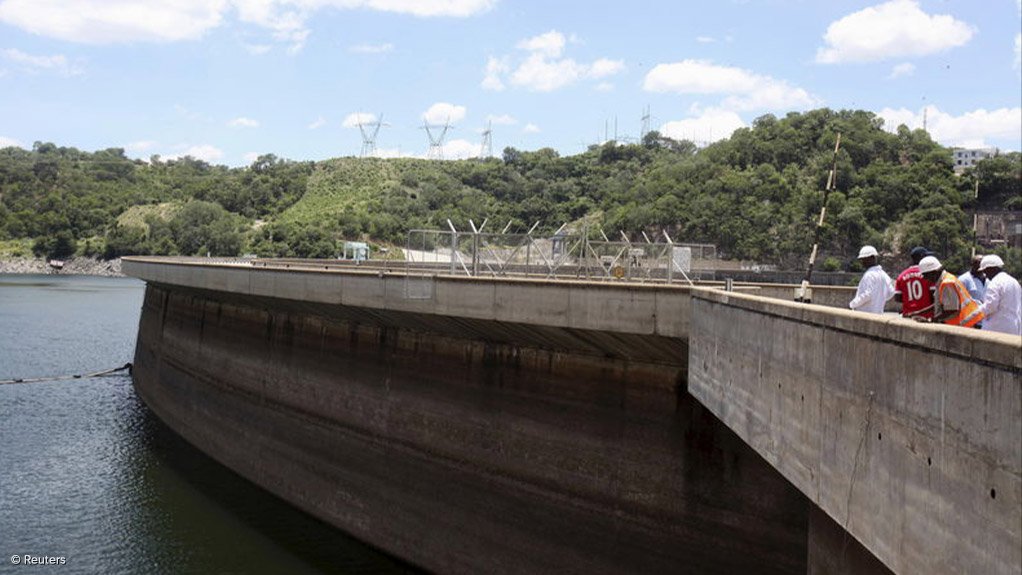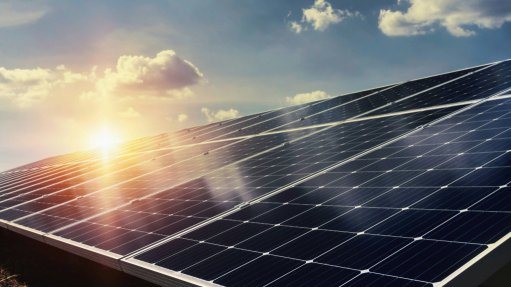Zimbabwe power cuts may deepen as water levels fall at Kariba Dam
Zimbabwe's largest hydroelectric plant, Kariba Dam, will suspend output in 14 weeks if water levels continue to fall at the current rate, the energy minister said on Thursday, paving the way for deeper power cuts in the country.
The Southern African nation has endured its worst rolling power cuts in three years, and although its mines have been spared so far, analysts say the cuts will hurt economic revival efforts.
Shortages of foreign currency have hampered Zimbabwe's ability to import fuel - the country owes foreign suppliers $200-million - and led to shortages of medicines in hospitals.
Fortune Chasi told a committee of parliament that power blackouts lasting up to 10 hours could not be avoided as Zimbabwe is producing 1 100 MW a day compared with demand of 1 500 MW.
Demand will increase during the winter peak period, he said, adding to the pressure on the grid. The country required $96 million to import more than 200 MW from regional suppliers like South Africa's Eskom and Mozambique's Hydro Cahora Bassa and Electricidade de Moçambique, said Chasi.
He said Zimbabwe owed the utilities $70-million for previous imports.
"There is no guarantee that there will be water, what we are seeing is a southward movement in water levels at Kariba. If the trend goes like that, we will probably say just after 14 weeks Kariba will not generate any megawatts," Chasi said.
Kariba, the largest electricity producer in Zimbabwe with a capacity of 1 050 MW, is generating less than a third of that due to low water levels caused by a severe drought.
Zimbabwe commissioned an additional 300 MW at Kariba last year, its biggest investment in electricity in more than 25 years, but a lack of investment is blamed for the current power shortages.
FUEL SHORTAGES
Central bank governor John Mangudya told the same meeting that Zimbabwe owed $200-million to foreign fuel suppliers including Glencore, Total and Trafigura, Engen and Independent Petroleum Group, which made new imports difficult as companies require cash up front.
The companies still ship fuel to Zimbabwe but keep it in bonded storage on the outskirts of the capital Harare, and it is only released to oil firms once they have paid in dollars.
Zimbabwe has experienced fuel shortages since September, forcing motorists to queue for hours to fill up.
"Fuel queues are an eyesore, we don't want to see them. The fuel situation is a symptom of a bigger problem in the economy," Mangudya said.
Mangudya said the central bank had in the past two weeks issued $115-million in letters of credit to oil companies to import 170-million litres of fuel, enough to last just over a month.
Article Enquiry
Email Article
Save Article
Feedback
To advertise email advertising@creamermedia.co.za or click here
Announcements
What's On
Subscribe to improve your user experience...
Option 1 (equivalent of R125 a month):
Receive a weekly copy of Creamer Media's Engineering News & Mining Weekly magazine
(print copy for those in South Africa and e-magazine for those outside of South Africa)
Receive daily email newsletters
Access to full search results
Access archive of magazine back copies
Access to Projects in Progress
Access to ONE Research Report of your choice in PDF format
Option 2 (equivalent of R375 a month):
All benefits from Option 1
PLUS
Access to Creamer Media's Research Channel Africa for ALL Research Reports, in PDF format, on various industrial and mining sectors
including Electricity; Water; Energy Transition; Hydrogen; Roads, Rail and Ports; Coal; Gold; Platinum; Battery Metals; etc.
Already a subscriber?
Forgotten your password?
Receive weekly copy of Creamer Media's Engineering News & Mining Weekly magazine (print copy for those in South Africa and e-magazine for those outside of South Africa)
➕
Recieve daily email newsletters
➕
Access to full search results
➕
Access archive of magazine back copies
➕
Access to Projects in Progress
➕
Access to ONE Research Report of your choice in PDF format
RESEARCH CHANNEL AFRICA
R4500 (equivalent of R375 a month)
SUBSCRIBEAll benefits from Option 1
➕
Access to Creamer Media's Research Channel Africa for ALL Research Reports on various industrial and mining sectors, in PDF format, including on:
Electricity
➕
Water
➕
Energy Transition
➕
Hydrogen
➕
Roads, Rail and Ports
➕
Coal
➕
Gold
➕
Platinum
➕
Battery Metals
➕
etc.
Receive all benefits from Option 1 or Option 2 delivered to numerous people at your company
➕
Multiple User names and Passwords for simultaneous log-ins
➕
Intranet integration access to all in your organisation




















